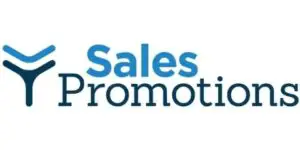Table of Contents
*This post may contain affiliate links. As an Amazon Associate we earn from qualifying purchases.
A spiff definition is a bonus paid on a sale made. When awarding a spiff, you should link it to your overall business strategy, systems, and employee behaviors. Generally, a spiff is a reward paid by the manufacturer directly to a salesperson.
There are many negative and positive perceptions of spiff incentive campaigns. When you use awards to increase sales to get rid of inferior merchandise, the customer need is not the first priority. The salesperson’s need to increase their income is the motivation. This puts spiffs in a bad light. However, when a spiff is used to launch a new product or make room for a newer model, the customer usually wins as well by getting a good deal on an exceptional product. So, spiffs can be a win/win.
Spiffs Gone Wrong
Sales spiffs can bring up images of under the table cash exchanges for seedy behavior. The U.S. Department of Justice identified the potential for graft and corruption when they specifically labeled spiffs or kickbacks illegal for government purchases in 2007.

When salespeople steer consumers to inferior merchandise, there is damage to customer loyalty. It was a big problem in the electronics industry many years ago, and many retailers suffered as a result. That is why you have to use spiffs carefully. Even if a spiff by definition is an award for selling, you need to take the initiative to make sure you are rewarding good sales behavior and not just any sales behavior.
Tracking spiffs is also an obstacle. A cash spiff may not make its way to the salesperson if a greedy manager or corporation pockets the cash. High salesperson turnover and reduced employee loyalty is often the outcome of such practices. You need to monitor the distribution of the spiffs to ensure this does not happen.
Spiffs Done Right
If the intention of a spiff program is to reward salespeople and also provide a quality product to the customer, it can be a successful short-term incentive for all. I worked in an industry that was always spiffing sales agents to up-sell or sell add-ons. At the same time, they were punishing them with poor reviews when they didn’t meet quotas. As we began to focus more on customer loyalty, our spiff program was tied into customer wants and needs rather than forcing the customer to buy something they may not want. This was done through upgrading our computer systems.
When a customer made a specific purchase, related products were identified to suggest to the customer. Each upgrade or add-on had a spiff attached, but the spiff was not immediately identified to the agent. They just knew that the suggestion was something that may enhance the customer experience. When they got paid, it was a nice bonus for doing a good job of maintaining a positive customer experience.
This is similar to purchases we make online today where related product suggestions pop up based on our shopping history. There’s a great article about automating spiffs in the auto dealership industry, “How do you motivate your salespeople” that demonstrates how the emerging spiff automation is a win/win for all.
Rules To Spiff By
Spiffs by definition should be short-term sales promotion campaigns that are in alignment with the overall business strategy. The occasional spiff program should be part of the overall promotional mix. While rewarding a salesperson for pushing a product out the door may meet your immediate needs to unload the product, keeping the consumer benefits in mind will make for a better future.
A spiff by definition is a trade promotion or push campaign. Consider adding a pull component to drive customers to the sales team. Using social media to announce a clearance sale or to deliver a coupon is a cost-effective tactic that builds goodwill while increasing awareness and sales.
Don’t become spiff happy. Offering too many spiff campaigns becomes a big, potentially uncontrollable expense. It may cause salespeople to hold off from selling your product as they wait for a better spiff to come along.
Develop an integrated trade program that focuses on rewarding overall production instead of an occasional spiff payout. You want to encourage salespeople to think about the customer and not just how much they can earn. Having a program instead of an occasional payout can help with this.
Spiff Definition: The Bottom Line
Spiffs can change behaviors, increase sales, and build customer loyalty, but only if salespeople focus on customer needs instead of their own pockets. If your spiff programs in the past have not worked to build your business, then you have done something wrong. Reevaluate to make sure any spiff campaigns you run stay customer-focused if you want to get the most from them.

